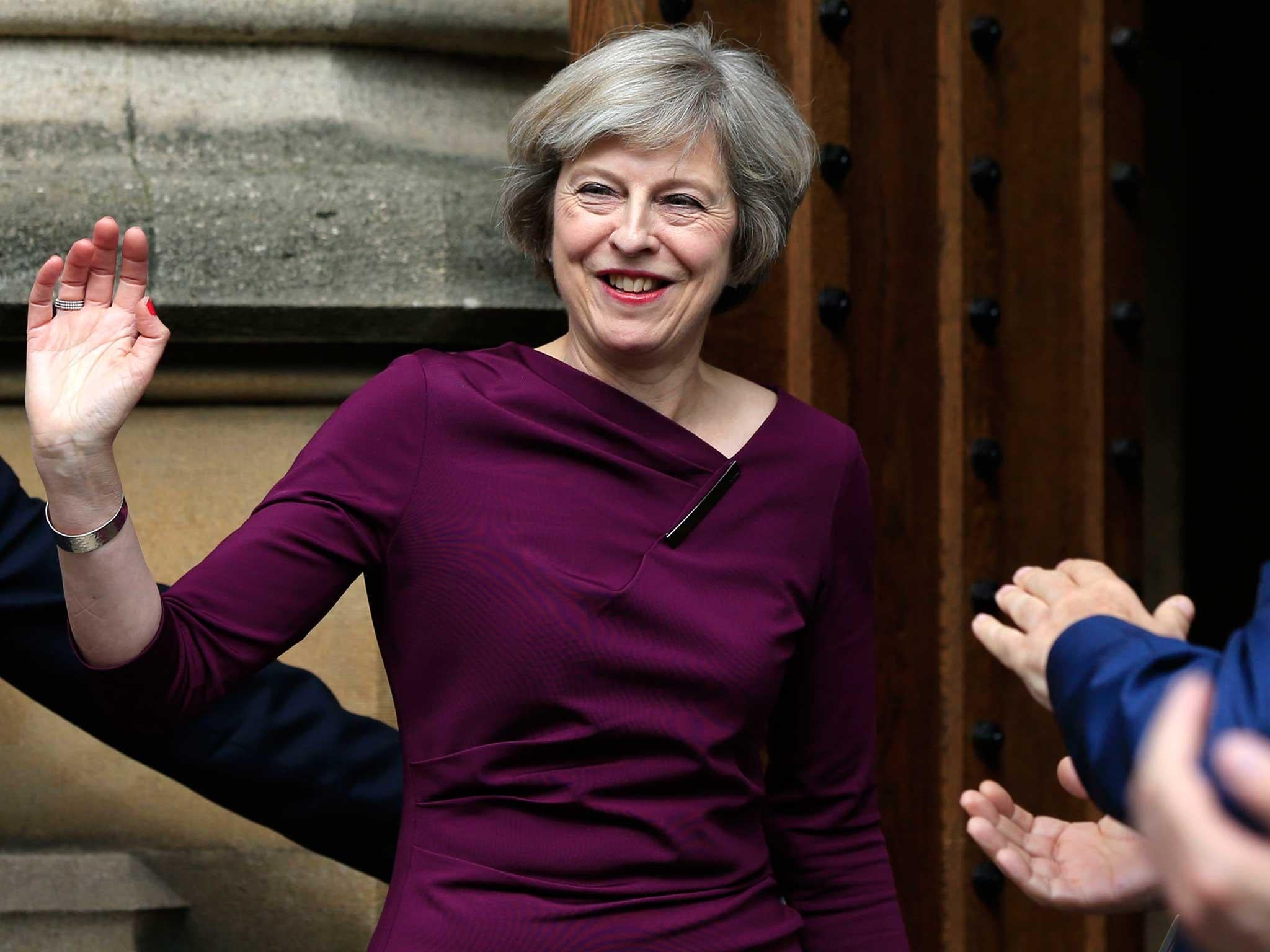What does Theresa May mean for UK foreign policy?
There is an opening, now the EU issue is decided, if not to branch out, then to take stock and at do some tidying up


Your support helps us to tell the story
From reproductive rights to climate change to Big Tech, The Independent is on the ground when the story is developing. Whether it's investigating the financials of Elon Musk's pro-Trump PAC or producing our latest documentary, 'The A Word', which shines a light on the American women fighting for reproductive rights, we know how important it is to parse out the facts from the messaging.
At such a critical moment in US history, we need reporters on the ground. Your donation allows us to keep sending journalists to speak to both sides of the story.
The Independent is trusted by Americans across the entire political spectrum. And unlike many other quality news outlets, we choose not to lock Americans out of our reporting and analysis with paywalls. We believe quality journalism should be available to everyone, paid for by those who can afford it.
Your support makes all the difference.Theresa May has two reasons to thank Margaret Thatcher. The first is that there is far less hullaballoo surrounding the arrival of a female prime minister. The second is that a host of preconceptions about how a woman might change foreign policy – kinder, gentler, less upfront, more devious, and averse to armed conflict – have been thoroughly dispelled.
Strange though it may sound, given the UK’s current political meltdown, May will also have it much easier than most of her predecessors, including Thatcher, in one crucial respect. The national ambivalence about the European Union that hobbled UK foreign policy in almost every respect is over.
May’s position as a shy Remainer taking on the Brexit mandate obliges her to respect the referendum result, and she has set out her stall quite explicitly: “Brexit means Brexit,” she said, “and we’re going to make a success of it... There will be no attempts to remain inside the EU, no attempts to rejoin it by the back door, and no second referendum.” We Remainers may not like it, but we can’t say she has not been clear.
EU leaders will probably be grateful for that clarity, too, though they would probably prefer the new Government to invoke the now famed Article 50 almost at once, just to drum the irreversibility point home. The EU needs to think about the UK in post-Brexit terms, and the UK does, too.
One way of doing this would be for May to entrust EU negotiations not to the new Foreign Secretary or necessarily to his department, but to a convinced – and qualified – Brexiteer, who would have full Cabinet rank. Not to an old-styler, such as Liam Fox or David Davis, either, but to a driven technocrat, such as Daniel Hannan, who knows the trade and migration briefs inside out.
Having just left the Home Office, May might be tempted to keep her hand in with the talks on judicial matters, intelligence-sharing, the European arrest warrant, and the like. She might also want to keep a watchful eye on the file marked “free movement”.
With the big EU question decided, however, at least in principle, she might reasonably decide to spin the globe a few times and peruse the options. Potentially, she has more freedom actually to shape the UK’s foreign policy than any other recent prime minister.
She could certainly consider the close ties that the UK still has further afield, for better (the US, Australasia, the New Commonwealth) and for worse (the legacy of recent wars in Afghanistan, Iraq and Libya). She might also take a new look at old unresolved quarrels (Argentina, Gibraltar), and more recent sources of different tensions (off-shore tax havens). There is an opening, now the EU issue is decided, if not to branch out, then to take stock and do some tidying up.
This does not mean that Europe will be neglected, but that it could, and should, be considered in a different way – as the geopolitical region the UK inhabits, rather than an institutional arrangement to which the UK is committed. This could mean closer coordination with those around the EU’s edge – the Nordics in particular, whether in or out of the Union – and more attention, through Nato, to defence.
The difficulty for May is that while the referendum brought clarity on the EU, it also left a big doubt. Did the Leave vote reflect a desire to bestride the world or to pull up the drawbridge? National or internationalist in spirit, that will be the question.
Join our commenting forum
Join thought-provoking conversations, follow other Independent readers and see their replies
Comments